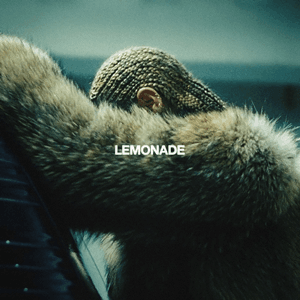 Beyoncé’s “Lemonade” has brought her husband’s music streaming service, Tidal, to the forefront of the fight for ownership of American culture, again.
Beyoncé’s “Lemonade” has brought her husband’s music streaming service, Tidal, to the forefront of the fight for ownership of American culture, again.
The release of the highly anticipated “Formation” album on Saturday has led to debate over the exclusivity of Jay-Z’s music-streaming service. Tidal’s declaration at the Jay-Z relaunch, signed by Madonna, Beyoncé, Rihanna, Jay-Z himself and other music powerhouses, detailed the service’s mission “to re-establish the value of music and protect the sustainability of the music industry rooted in creativity and expression.”
“Jay-Z is one of the largest equity shareholders in Tidal, so I bought ‘Lemonade’ on iTunes to support Beyoncé,” senior Alex Hushak said, referring to Jay-Z’s alleged infidelity discussed throughout the album. “I’m supporting Beyoncé by buying her album on iTunes. Tidal does not have a monopoly on supporting artists and sustaining the music industry.”
The artists’ majority-owned company attracts subscribers with its Lossless sound quality and exclusive artist editorial and video. According to Tidal’s “Lossless Explained” video on their website, MP3 files are condensed and often leave out sounds to take up less space.
Tidal’s Lossless quality runs at 1411 kilobits per second (Kbps), compared to Spotify’s Vorbis at 320 Kbps, and iTunes’ AAC 256 Kbps, leaving room for the sound the artist intended the listener to enjoy. The streaming Lossless high fidelity sound quality is the rationale behind charging $20 a month for the service’s HiFi plan.
“I signed up for a 30-day free trial of Tidal so I could listen to ‘Lemonade’ by Beyoncé,” junior Bryn Vaydik said. “I didn’t know how long it would be before it was released on iTunes or Spotify, so I needed to sign up.”
“I think it was important for me to listen to the album because of everything that’s happened with Beyoncé in the past couple of months. After the Super Bowl, after the ‘Formation’ video, after the tour was announced, I knew that she was planning something big, so I knew I had to listen to it. I couldn’t be behind.”
Like Spotify, Tidal offers a student discount of 50 percent, priced at $5 for a premium subscription (with no Lossless sound quality) or $10 for Tidal HiFi.
The streaming service has been the site of controversy regarding its exclusivity (or lack thereof). Gizmodo’s Alex Cranz, who compiled the search interest in Tidal for February 2016 in her article “Not Even Kanye Can Save Tidal,” found that Tidal is only popular on the web for 24 to 48 hours after an album is released exclusively on the streaming service.
“In the case of ‘Anti’ the drop off was sharp — likely due to the album’s exclusivity lasting only 24 hours,” Cranz said. “The drop was less dramatic after the release of ‘Formation,’ and one could make the broad assumption that this was because Beyoncé has made no plans to release the single through other services. As for Kanye? It took him nearly three years to perfect ‘The Life of Pablo’ and only two days post announcement for interest to wane in its exclusive platform.”
“I signed up for Tidal originally so that I could listen to Rihanna’s new album when it came out,” Bianca Burns, a DePaul student and self-described Beyoncé super fan said. “I’m satisfied at the moment because Beyonce’s ‘Lemonade’ was released via Tidal and I can watch it whenever I want. Tidal is only worth it if you care about exclusivity and being ahead of certain music trends.”
The exclusivity of the content is debated however, because new albums are usually put on iTunes for sale after a few days. Beyoncé’s ‘Lemonade’ went live for purchase on iTunes on Monday, April 25, and it’s been at the top of the charts since its release. The next three albums belong to Prince.
Burns pays for Tidal because of the genres of music offered on the service. “It’s very hip-hop, rap, R&B, funk, soul music-centered so it appeals to me because that’s what I listen to. However, if those genres don’t appeal to you, it’s not something you want to invest in.”
“Tidal might be worth it when it’s exclusive, but once anyone else has it, it doesn’t matter,” Vaydik said. “If iTunes didn’t have Lemonade, then yes, maybe it would be worth it to pay for Tidal. Since it’s on iTunes, it doesn’t matter that it’s on Tidal.” Bryn does not plan on paying for Tidal once her 30-day free trial is finished.

